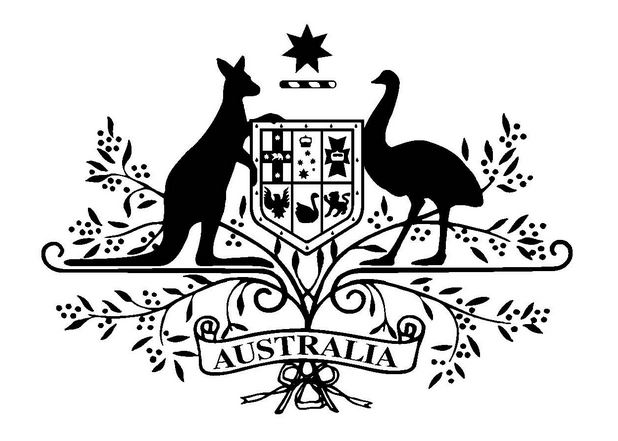
Australian Signals Directorate, Canberra
Prime Minister
Minister Assisting the Prime Minister for Cyber Security
E&OE
PRIME MINISTER:
Dan Tehan and I have just been receiving briefings from Paul Taloni and his team here at the Australian Signals Directorate. Men and women in this building are on the front line of keeping Australia safe in the cyber warfare field. Cyber security is at the very forefront of what we are doing to keep Australia safe.
It is more important than ever, and just as you’ve seen with our Cyber Security Strategy, the appointment of a Cyber Security Adviser, with the efforts we are taking to protect Australians online, to ensure that our critical infrastructure is safe from cyber-attack.
This is the new frontier of warfare. It’s the new frontier of espionage. It’s the new frontier of many threats to Australian families, to governments, to businesses.
We have the most outstanding professionals in the world working for us here. There is no better cyber security organisation, signals directorate organisations than the Australian Signals Directorate. We are very fortunate to have such outstanding men and women.
Now, as you know, there has been evidence of Russian efforts to influence the recent American election. This is acknowledged now on all sides. It was controversial for a while politically in the United States, but it’s acknowledged that there was Russian interference both in terms of hacking and in terms of seeking to influence the election through so-called fake news. Threats like this from wherever they come, are of great concern to our nation, to our Government, to me as Prime Minister. We have to make sure we maintain the integrity of our political process. So we, Dan and I, are ensuring that there will be a full briefing by our cyber experts to other political parties, other political leaders, when Parliament comes back.
We need to be aware of the threats and how to mitigate them and protect against them. Awareness is the absolutely most important first step. A lot of the vulnerabilities, as you will have seen, are because people do not follow good cyber practice. They open attachments from sources they are not familiar with. They’re not sufficiently careful in the way they manage their passwords. They don’t, for example, use two-factor authentication with cloud-based application and so forth.
So it is very important to be aware – the vulnerabilities are always there – if people are not. It is also critical that we maintain the integrity of our political process.
So that has been the focus of our discussions today and we will be ensuring that all political parties and the other political leaders are well aware of the risks and how to protect themselves from them and how to ensure that we maintain – as I said – the integrity of our democracy. Dan?
MINISTER ASSISTING THE PRIME MINISTER FOR CYBER SECURITY:
Thanks PM. As we know cyberespionage is alive and well. As you’ve said, this issue is beyond politics. This is about protecting our democracy. That is why you have taken the steps that you have, because this goes beyond political games. This goes to the heart and soul of what we are and who we are as a nation. We have state elections coming up this year. We have to make sure that they are protected, that when Australians go to vote, they can have confidence that there is no compromise of our electoral system and our democratic process. It is a pleasure to have been at ASD with you today to get the briefing. As you said, these are outstanding Australians who are keeping us safe.
PRIME MINISTER:
Just before we go to questions I should note that last night I spoke with Shinzo Abe, the Prime Minister of Japan, about a number of important issues, particularly trade issues. But in the course of that conversation I conveyed to the Prime Minister our condolences on the death of the Japanese national who was killed in Bourke Street last week. The Prime Minister of Japan was grateful for that expression of sympathy and conveyed to me his and his nation’s condolences and deepest sympathy for the loss of life and the injuries occasioned by that shocking crime in Bourke Street last week.
JOURNALIST:
Prime Minister, one way for foreign actors to influence the Australian political process would be to gather compromising material on individuals. How likely, or how would you assess the likelihood that some kind of material has already been gathered on Australian politicians or public figures?
PRIME MINISTER:
I would only be speculating on that but clearly that is a vector.
JOURNALIST:
Prime Minister, obviously without giving too much away of what you heard today, what are we talking about in terms of the vulnerabilities? Are we talking about Government communications or private political parties? Some specifics if you wouldn’t mind?
PRIME MINISTER:
Well, all computer systems have vulnerabilities, particularly if they are connected to the internet. You can have flaws in the hardware that provide vulnerabilities, flaws in the software, and – as I often say – the biggest vulnerability is often the “warmware”; the humans making mistakes, or, indeed, taking information as say Edward Snowden did in a criminal fashion.
The most important thing is to be aware and to practice good cyber hygiene. The ASD sets out some very good principles in this regard. My cyber advisor, Alastair MacGibbon, as you know is regularly speaking about this issue and raising awareness. The vulnerabilities are there and they are in every computer system, potentially. But, obviously the more aware you can be, the better your practices are, the less likely you are to be compromised.
Further transcript – https://www.pm.gov.au/media/2017-01-24/doorstop-minister-assisting-prime-minister-cyber-security-hon-dan-tehan-mp





